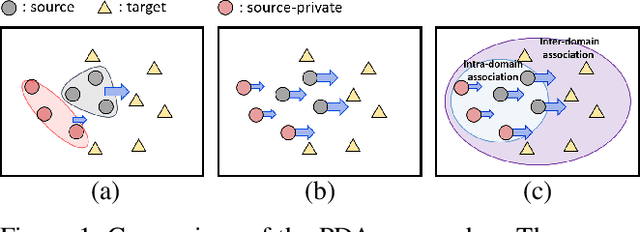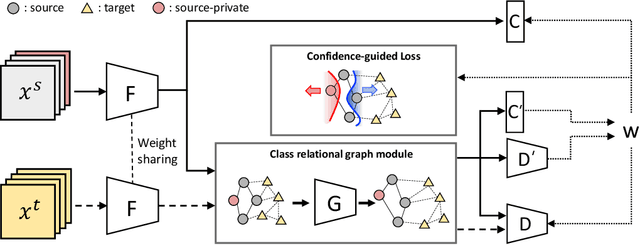Associative Partial Domain Adaptation
Paper and Code
Aug 07, 2020



Partial Adaptation (PDA) addresses a practical scenario in which the target domain contains only a subset of classes in the source domain. While PDA should take into account both class-level and sample-level to mitigate negative transfer, current approaches mostly rely on only one of them. In this paper, we propose a novel approach to fully exploit multi-level associations that can arise in PDA. Our Associative Partial Domain Adaptation (APDA) utilizes intra-domain association to actively select out non-trivial anomaly samples in each source-private class that sample-level weighting cannot handle. Additionally, our method considers inter-domain association to encourage positive transfer by mapping between nearby target samples and source samples with high label-commonness. For this, we exploit feature propagation in a proposed label space consisting of source ground-truth labels and target probabilistic labels. We further propose a geometric guidance loss based on the label commonness of each source class to encourage positive transfer. Our APDA consistently achieves state-of-the-art performance across public datasets.
 Add to Chrome
Add to Chrome Add to Firefox
Add to Firefox Add to Edge
Add to Edge